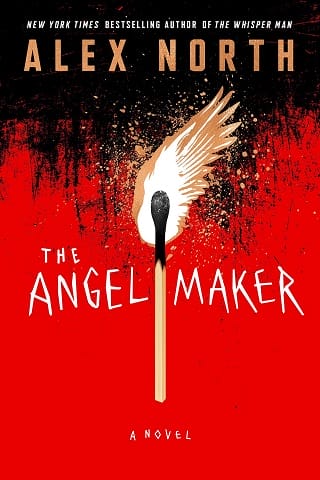Chapter Fifty
It is October 4, 2017.
Hobbes is in bed when Christopher arrives. He lies very still and keeps his eyes closed as his son enters the apartment and walks quietly across the room toward the archway.
The pills are taking effect. He is already dying.
He is not scared of that. If all moments exist at once, then his life will always be there—every instant of it as vivid and real as the ones that came before him and the ones that will follow.
And he isn't afraid of what might await him either.
The question he once asked in a lecture theater returns to him now: If you were a father, which would you prefer? A child who always did as they were told—as you thought they should—or a child who disobeyed you and tried to forge their own path? Even if you know your child will make mistakes along the way, the answer remains obvious to Hobbes. And so he has watched much of Chris's life unfold with a sense of anguish, and there have been moments when he might have done more. But it is a parent's job to guide their children gently and hope for the best, not to control them.
If God disagrees, then so be it.
Untethered from time now, Hobbes begins to drift.
Four days from now, Edward is standing in the room beyond the archway, with a notebook in one hand and a lighter in the other. He has already flicked through the book and begun to understand what it is. Not their father's notebook at all, but the diary Hobbes has spent much of his life writing. Each word within it is neat and clear, and it gives an accurate account of everything, good and bad, that has happened. It describes the world as it has been—how he has made it—irrespective of what was intended for him.
He remembers how he ended his final entry.
And then Edward Leland read what had been written.
Hobbes drifts further.
It is September 16, 2015.
In a different universe—one you might find described in an entry somewhere in Jack Lock's notebook—Chris would be lying dead in the home of a stranger. But in this one, Hobbes finds his son beneath a railway arch a few hours beforehand and makes him an offer.
Call me Alan.
It is May 3, 2000.
Hobbes spends the afternoon drinking alone in his apartment. Twenty miles from the house, Christopher begins walking home from school by himself while a red car patrols the neighborhood, its driver beset by demons and voices, haunted by a mistake he senses he has made without quite understanding what it is. But as the car swerves across the pavement in front of Chris, a delivery truck is already turning onto the other end of the street. The driver of the truck is a good man. He is also a diligent one. After he saves Chris's life, he will attempt to complete his delivery—only to find an empty property with a note taped to the door. Please open the package you are holding. Within it he will find a substantial sum of money and a thank-you note. And although he will never understand the nature of the gift Alan Hobbes has arranged for him, he will never reveal it to anyone either.
It is July 27, 1996.
Chris and his family are parking outside a sunlit mill. Inside, the floors smell of freshly sanded wood. Chris stops briefly by the window of one unit and stares at the dice inside, and then the father unlocks a door and turns on a light, and the family marvels at the sight awaiting them within.
It is a moment worth recording.
"Would you mind?" the mother asks.
Hobbes has arranged to be passing just then.
"Not at all," he says.
He takes the camera and then waits as the family lines up in front of the candle shop. Chris is staring back at him with a curious expression on his face, as though he recognizes him but can't quite remember from when. It causes Hobbes's heart to break; he misses him very much. But the boy is happy right now, and that has to be enough.
He takes the photograph.
It is October 4, 2017, again.
Hobbes can feel that Chris has returned from the other room and is now standing beside the bed. A part of Hobbes aches to say something to his son, but the time for that has passed, and it won't help. He has already said goodbye to Chris, and the sadness of seeing someone for the last time will always be the what and why of it, not the when.
He hears Chris walk away.
And now—finally—it is an hour earlier.
Hobbes wraps Jack Lock's notebook in the cover he has torn from Laplace's book and then slips it into the protective sleeve. Perhaps there is still knowledge within it that his son might use, for good or for ill. If so, he hopes Chris chooses wisely. But regardless, the choice must be his. His son must find his own path.
Hobbes takes the photograph of himself and Charlotte out of the frame and places it facedown on the desk.
Then he picks up the pen.
I love you so much, he writes on the back.
Do your best.
 Fullepub
Fullepub 



